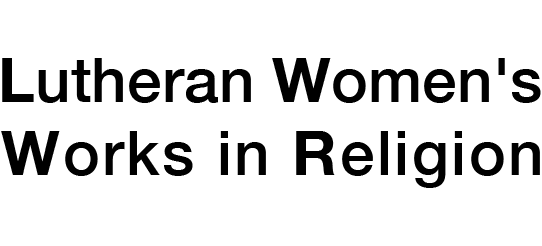Bibliography Author: Laurie Jungling
THEOLOGY
Laurie Jungling "Creation as God’s Call into Erotic Embodied Relationality" In Eros: Bodies, Desires, and Sexuality in Christianity. ed. Kamitsuka, Margaret. Minneapolis: Fortress Press 2010In many recent progressive theo-ethical discussions of the erotic, freedom has become the preeminent theme in articulations of sexual relationships. In this essay I submit that when considering the creator God in relation to the erotic, something is missing if only freedom is emphasized. The God of love, who creates all things, not only loves freely but faithfully as well.
THEOLOGY
Laurie Jungling "Passionate Order: Order and Sexuality in Augustine’s Theology" Summer In Word & World. vol. 27, no. 3, 2007Augustine‘s understandings of order and sex are interwoven themes throughout his theological work. While Augustine moved beyond a strict body-soul dualism to retain sex as a part of God‘s created order, sex after the Fall became for Augustine a theological concept as a symbol, evidence, and paradigm of disordered sinfulness. This move has left a historical legacy that has caused much suffering to those who seem to fall outside Augustine‘s order.
ETHICS
Laurie Jungling "A Brief Case Study on Compromise" 9 In Journal of Lutheran Ethics. vol. 7, July 2009The recommendations on ministry policy made by the Task Force for the ELCA Studies on Sexuality and coming before the 2009 Churchwide Assembly have provoked disparate responses from differing constituencies within the ELCA. In this article I propose to describe, through a case study, the ways in which the actual recommendations of the task force represent a compromise between two opposing sides.
ETHICS
Laurie Jungling "A New Vision of Marriage as Vocation for the Lutheran Tradition" 7 In Journal of Lutheran Ethics. vol. 2, February 2007I argue for a helpful criterion in defining marriage that honors this foundational social relation yet does not exclude persons from it according to their “form.” God‘s call should not be determined according to a static social order that is often defined according to human understandings of physical form. Instead, God’s call to serve our neighbor is the Lutheran criterion that should structure the many relationships in which humans live, including marriage.
ETHICS
Laurie Jungling "Conscience-Bound or Conscience-Liberated: What is best for the ELCA?" 5 In Journal of Lutheran Ethics. vol. 7, July 2005What is the bound-conscience and what does it have to do with deciding whether or not the ELCA should accept for ordination gay and lesbian persons in long-term, monogamous, faithful relationships? In this article, I ask whether or not we might do better to speak of a “liberated conscience” as opposed to a “bound” one in relationship to this question.

